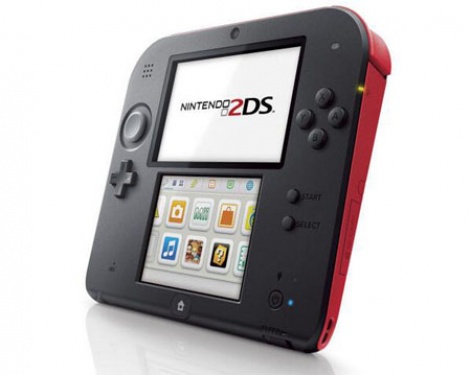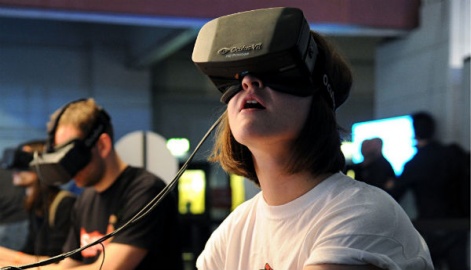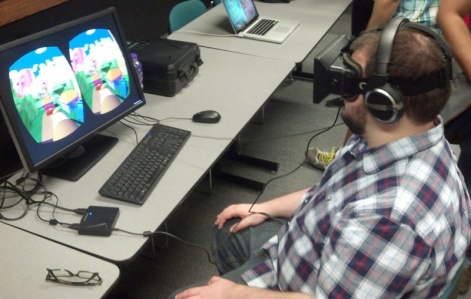VR is cool, really cool.
But it's also really just a step up from the existing 3D display technology, which hasn't exactly set the living room alight in recent years.
3D movies are still really cool. Avatar was a phenomenon when it came out, and if you didn't see Gravity in 3D, then you missed out.
But when it comes to TV, even ESPN's stopped making 3D content.
As a live sports channel, ESPN is the one thing keeping cable TV alive so if it doesn't think 3D is worth it, no one on the broadcast side thinks it's worth it.
And that's a strong indicator the mass market doesn't care for 3D content in their homes either.
People will go see a 3D movie in the theaters, but 3D TV died a while back.
A dimension too far
It's a similar situation in gaming.
There's the Nintendo 3DS, of course, but people just don't seem care that much about the '3D' in the 3DS. Nintendo thinks so little of it that it made the 2DS as a cheaper, mass market alternative.

The point is that across many form factors, consumers have overwhelmingly rejected 3D hardware. The 3DS doesn't sell because of its 3D visuals. As for TVs, the must-have features are now curved screens and 4K resolutions.
Whichever way you consider it, despite billions of marketing dollars, 3D display technology cratered.
But we expect VR to cross this hurdle. How, exactly?
Moving images
Part of the problem with VR is cybersickness. It is a real problem, and it was bad PR for 3D.
People who have had bad experiences with 3D in the past won't be interested in trying VR, even if Oculus or another company can solve the problem, and truly deliver on the promise of presence.

Another significant issue will be - and it's silly to think about this as an issue but it is - VR hardware just doesn't look sexy. It looks goofy.
VR hardware doesn't look sexy. It looks goofy.
Oculus isn't *that* bad, and there are plenty of worse-looking examples, but aesthetically any VR headset is going to be a tough sell, because not everyone wants to look like a Daft Punk cosplayer or Geordi La Forge.
Glass houses
Let's consider an easier problem - Google Glass.
The concept sank over the combined issues of privacy and the fact that no matter how beautiful the models wearing Glass were, it was ugly.
That Glass part sticking out of Google Glass was what made "glasshole" a common pejorative. You could put that computer part on as stylish a frame as you wanted, but it stuck out like a sore thumb, and was ripe for mockery.

VR helmets ain't any sexier.
And yes, looks are important to the mass audience.
Not everyone is fine with looking like a cyborg. And there are plenty of snarksters who will put down even potentially cool and useful tech if it looks a bit silly.
I think there are too many hurdles for VR to become a mainstream phenomenon.
If VR becomes this thing that people laugh at, I fear plenty of people who would otherwise check it out won't.
It's a dumb reason, but a valid fear. I honestly believe what Google comes up with next in the Glass era - and other wearable eye solutions - will be better received the smaller and more inconspicuous they become.
Let's face it. People in glasses look good. I welcome our bespectacled future.
Niche viewing
But here's the thing: there are plenty of people who can handle simulated 3D images. There are also plenty of people who don't have a problem looking like a cyborg.
Maybe it's a large niche audience, but if they're willing to spend the money on hardware and software for VR, it can succeed.
It helps, too, that the screens are based on consumer tech. The hardware could sell if it's affordable. And maybe it's not even gaming that provides the VR killer app.

Maybe TV/movies are that secret sauce, or enterprise, or - let's not kid ourselves - the secretest saucest sauce of them all - pornography.
Yet, overall, I think there are too many hurdles for VR to become a mainstream phenomenon.
It has the potential to be a very exciting niche that's accessible because it seems like VR should eventually be more of a software problem than a hardware one.
Oculus, in particular, has the benefit of having Facebook money: Zuckerberg would rather go broke than be irrelevant.
VR could have a future - just don't expect it to be *the* future.






















